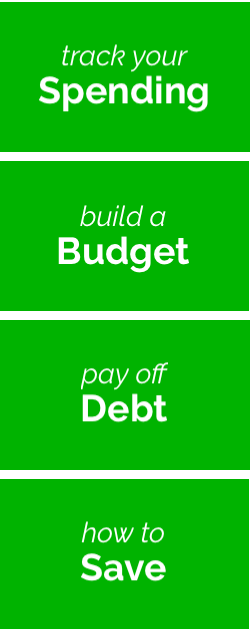Our Quickly Changing Spending Habits
It may not always be that obvious, but habits have a LARGE impact on our day-to-day spending. Very little of our monthly spending is actually driven by pure decision making. Although we would like to believe we’re in control of our spending, the truth is most of our day-to-day spending is driven by our spending habits. Even when we think we’re making a unique spending decision, “should I buy this new toaster or not?” it’s still likely influenced by our past spending decisions.
Spending is also very important, it has an ENORMOUS impact on a financial plan. Unlike other financial factors, whether than be investment returns or income, spending is the number one factor when it comes to financial planning.
Spending even an extra $10/day means a potential $192,389 LESS at retirement.
PLUS! Spending an extra $10/day IN retirement requires an extra $91,240 in financial assets at the start of retirement.
So not only does spending more mean you have less financial assets at retirement, it also means you need more assets to support that spending, a double impact!
Spending is important to every financial plan, and because spending is driven by habits, that also means habits are important.
And… unlike any time in recent history, our spending habits have been disrupted like never before.
Social distancing, self isolation, work from home, school closures, essential versus non-essential business etc. These changes have had an enormous impact on our spending habits in a very short period of time.
Despite the very negative reason for these changes there is a positive aspect, our spending habits have undergone a massive disruption. Unlike any time before, now it’s easier than ever to evaluate spending habits and decide what is truly important and what is simply nice to have.
Many of us will need to evaluate our spending habits out of necessity, but many of us can also take this time to evaluate our spending habits out of choice. We can all use this disruption to our normal spending habits as an opportunity to change our habits in a positive way for the long-term, putting us on a better financial path in the future.
Traditional Ways To Change Spending Habits
Traditional ways to change spending habits often revolve around tracking spending. Budgeting is the typical way to manage spending. It requires tracking spending, creating a budget, and then adjusting habits if spending is above budget in a particular category.
Budgeting focuses on changing spending habits slowly over time. It requires a focus on one or two spending categories at a time. Focusing on more than one or two spending categories at once can often lead to “budget fatigue”. Budget fatigue is when you just get tired of constantly controlling spending habits and give up entirely. By focusing on just one or two spending categories at a time it’s possible to change spending habits slowly and more successfully.
The other, more extreme way to change spending habits is to do a “no spend” month. This is the equivalent of going “cold turkey” for your finances. The idea is that all spending, except for essentials, is stopped for a period of time, usually one month. A period of one month is critical because it helps break previous habits and helps form new ones.
An Involuntarily “No Spend” Month (Or Months)
Where we find ourselves today is essentially an involuntary no spend month (or possibly months). Never before have our collective spending habits changed so suddenly and so severely. And yet this change in spending habits creates an enormous opportunity to make new and positive spending habits that will benefit our finances for the rest of our lives.
Unlike any time in history, we all are being forced to change our daily habits. We’re being forced to reduce the number of purchases we make and in some cases stop spending all together.
On average the typical person makes between 2-3 transactions per day, last year I was personally making around 1.3 transactions per day, in the last three weeks I’ve made just 0.6 transactions per day! And most of these have been regular monthly utility payments and subscriptions.
Even those routine transactions are now easier to see and evaluate. They’re not being hidden by a sea of other purchases. The remaining transactions are mostly recurring bills and subscriptions. It’s easy to see which bills/subscriptions are still useful and which could be cut or reduced.
An Opportunity To Evaluate Spending Habits
This massive change in spending creates an opportunity to evaluate our spending habits. It creates an opportunity to ask questions like…
What spending is actually adding value?
What spending isn’t being missed?
There are probably things that you used to spend money on a few weeks ago that you now don’t miss at all. You may have found new ways to meet those needs, or you may have realized you don’t really need it at all.
These insights into spending habits are only possible when we’re forced to make changes (either voluntarily, or in this case involuntarily).
This forced change in our habits has created an opportunity. We all have an opportunity to evaluate what spending we want to keep, and what spending we want to get rid of. We’ve crossed the 30-day threshold for breaking old habits, and now we can begin building new spending habits that reflect what we truly value.
The Impact Of Spending
The reason why spending habits are so important, and the reason why we want to break bad habits, is because the impact of spending is quite large on our long-term financial success. Spending is the most important factor in a financial plan. It’s the number one driver of financial success or financial failure.
One reason spending is so important is that it’s entirely under our control. It’s something everyone can manage. We all have the ability to reduce spending (although the WAY we reduce spending will be different for everyone because we all value spending differently).
The other reason spending is so important is that even a small change in spending is worth tens of thousands or even hundreds of thousands of dollars over time. The compounding effect of a small change in spending is so large it’s impossible to ignore.
Spending $10 less per day will add up to $192,389 at retirement (after 30-years of investing).
PLUS! Spending $10 less per day in retirement requires $91,240 less in financial assets to support that spending.
The combination of spending less before retirement (and investing more), and spending less in retirement (and needing fewer investment assets), means more financial freedom both before and after retirement.
This is why spending habits are so important, a seemingly insignificant amount ($10/day) can snowball into a sizable nest egg over time.
Join over 250,000 people reading PlanEasy.ca each year. New blog posts weekly!
Tax planning, benefit optimization, budgeting, family planning, retirement planning and more...
Join over 250,000 people reading PlanEasy.ca each year. New blog posts weekly!
Tax planning, benefit optimization, budgeting, family planning, retirement planning and more...






This is a good time to reassess spending. I find that we are reassessing spending within a category — like food, for example, as we’re doing a lot more cooking at home than takeout or dining out. Needing to stock a pantry and make choices about what to keep on hand is also a good time to thinking about what we spend in terms of dollars and also calories/ nutrition. Another category that will shift for us is travel, when that opens up. It’s a big priority for us, and we’ll have to rethink how we’ll handle that. Finally, our investments choices are another key category up for reassessing given the market volatility and increased need for cash.
Hi Caroline, we find we’re doing the same, spending a bit more in some categories but much less in others. Hope you get to travel again soon! Thanks for the comment, stay safe!